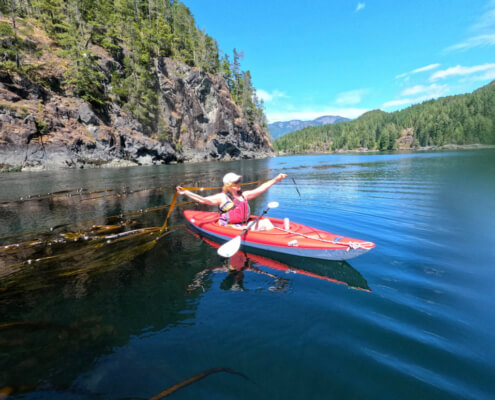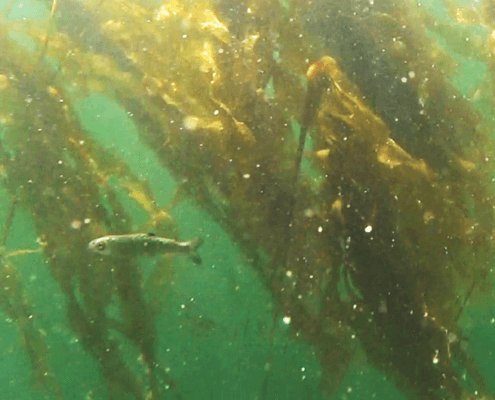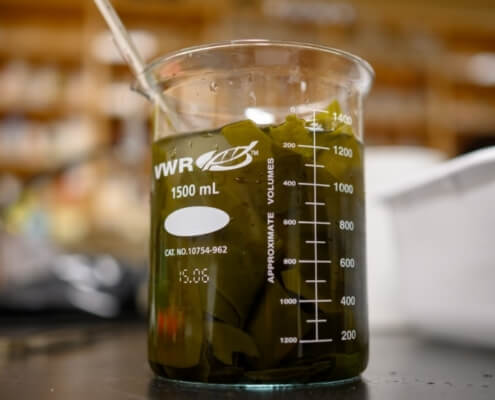By restoring vital marine habitat, we can help Pacific salmon recover.
You’ve likely read about Pacific salmon in the news recently. Salmon are deeply connected with our culture, our connection to nature. They support our fresh water, marine and forest ecosystems, and they are critical food for eagles, orcas and bears.
But, right now, Pacific salmon populations are struggling. The reality is that about half of Pacific salmon populations are in a state of decline.
This summer we experienced some of the hottest, driest weather on record in B.C.
Factors linked to climate change are making it difficult for the survival of Pacific salmon, including; warming oceans, diminishing healthy habitats and declines in the availability of vital food supplies. These barriers are all linked to climate change and poor survival of young Pacific salmon.
But, it’s not all doom and gloom.
The good news is that our team is conducting research and funding community restoration projects around B.C. —many here on critical rivers and streams throughout Vancouver Island/in the salmon spawning watersheds of the North Shore to address some of the complex risk-factors contributing to serious declines of many salmon populations.
These projects rally thousands of community volunteers who are concerned about the state of Pacific salmon.
To support this critical area of research and restoration that we know will help give vulnerable juvenile Pacific salmon the best chance at making it to adulthood, we’d like to ask you to consider a donation to help ensure we don’t lose Pacific salmon on our watch.
If you’d like to speak with our fundraising staff about how your gift can make a difference, please contact us at salmon@psf.ca or call 604-664-7664 and we’ll be sure to get in touch.
For young salmon, as they transition from the rivers and streams where they began life, the first few months in salt water are a critical period in determining whether they will make it to maturity.
Our scientists have long known that the transition from freshwater to life at sea is tough for salmon. But, they needed to understand exactly why fewer salmon are returning to the Salish Sea as adults.
So, our team set out to find out what was happening to them as juveniles.
Working with research partners in Washington State, our teams collaborated on a comprehensive five-year study of the Salish Sea ecosystem. This work revealed very clear factors contributing to the decline of Pacific salmon. And, these findings have provided us with a number of research-informed actions that can give young salmon a fighting chance to survive.
We’re pleased to share that we’re ready to launch a comprehensive network of strategies to help at risk Pacific salmon recover in the face of climate change.
Will you make a gift today to support vital habitat restoration and bring back Pacific salmon?
Recovery work is essential as Chinook, Coho, and steelhead in the Salish Sea are struggling. Some populations have dropped by 90%, threatening salmon-dependent economies, First Nations cultural traditions, and the entire ecosystem.



